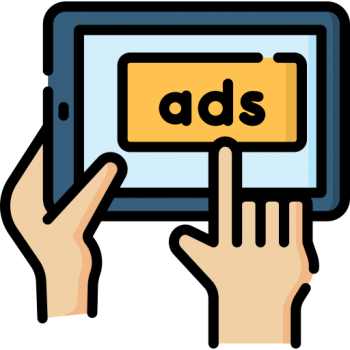Pay-per-click programs allow webmasters to earn money and to buy advertising by clicks, although one is not obligated to do both. In the early days of the internet, large companies found new users by paying website owners to host their banners giving them more exposure and targeted advertising. But paying for a banner on a low traffic site was a recipe for disaster. The costs were too high for little or no results. Then, a new model was developed where companies paid based on the number of times a banner was loaded. Usually, the webmaster was paid in “thousands” meaning that she might get $2.50 per thousand views. Of course, this was not feasible for long as many people found ways to increase views with again, little or no value to the advertiser.
 Thus, as a new revenue and advertising model was created called “pay-per-click”, an advertiser only paid for those users who came to her site, and webmasters could earn money based on what those users clicked. The most well-known programs are Adsense and Adwords by Google. For webmasters who enroll in Adsense, they are paid a portion of the advertising revenue that Google receives when their users click on an ad. After placing a snippet of Google’s predetermined code on the website, Google will serve relevant ads to the users. For example, someone viewing a wedding website would see ads from advertisers who sell wedding favors, wedding gowns, and other specialty bridal products. If the user sees something that interests her, she clicks on the ad to see what the company is offering. Then, at the end of the month, Google adds up all the revenues per click and sends out a check to the webmaster.
Thus, as a new revenue and advertising model was created called “pay-per-click”, an advertiser only paid for those users who came to her site, and webmasters could earn money based on what those users clicked. The most well-known programs are Adsense and Adwords by Google. For webmasters who enroll in Adsense, they are paid a portion of the advertising revenue that Google receives when their users click on an ad. After placing a snippet of Google’s predetermined code on the website, Google will serve relevant ads to the users. For example, someone viewing a wedding website would see ads from advertisers who sell wedding favors, wedding gowns, and other specialty bridal products. If the user sees something that interests her, she clicks on the ad to see what the company is offering. Then, at the end of the month, Google adds up all the revenues per click and sends out a check to the webmaster.
On the other side of the coin, if a webmaster wants an economical way to promote his product or service, he can join the Adwords program and find low-cost keywords that best describe his website. He sets up his text or word ad, chooses a keyword, decides how much to pay, creates a daily maximum, and then lets Google serve his ads on relevant sites throughout the network and on Google’s search engine home page. When he gets his bill, he will only be charged for those users who actually clicked through to his website from the displayed ads.
Obviously, the two programs depend on one another because without any advertisers, there could be no revenues for the website owners, but that does not mean that a webmaster must join both programs. Many people never do both. There was a time when people found a way to buy advertising clicks at a price lower than what they received on the same website making them some substantial income. This was called arbitrage but has been in most instances terminated. Not only is the practice discouraged, but it is almost impossible to find terms that cost less than they earn.
As you can imagine, pay-per-click programs are a type of online marketing fraught with fraud. Many dishonest webmasters look for ways to increase their revenues by fake clicks. Since Google has the financial resources to combat these traits, they vigilantly watch for these fraudulent clicks and bar those webmasters from participating in their program. Needless to say, pay-per-click programs do not pay on counterfeit clicks.
